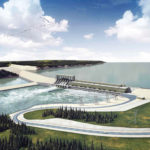
Tag Archives greenhouse gas emissions

Clean energy can drive rural economy
Speakers call for switching out some of the $4 billion now spent on fossil fuel imports to Manitoba with homegrown renewable energy sources

KAP welcomes further carbon tax exemptions
Fuels used to heat and cool livestock buildings, greenhouses or to dry or store crops will be exempt

Cellulosic biofuels best bet for climate concerns
They’re lower impact than other options and can even sequester carbon rather than produce it

Ontario proposal aims to double ethanol blend in fuel
Government move would boost corn market in the province

Better soil health could capture more carbon
A recent study says changing farming practices could capture as much carbon as the global transport sector emits
Editorial: Wheels within wheels

Agriculture major player in ‘Made-in-Manitoba Climate and Green Plan’
Increasing the biodiesel mandate could cut up to 431,000 tonnes of carbon by 2022, second only to reductions expected from the $25-a-tonne carbon tax

Legal opinion backs Pallister’s approach to carbon pricing
Manitoba’s ‘Green Plan’ to cut emissions will be out soon and the premier says he wants Manitobans’ feedback

Manitobans will see carbon price plan soon
But Premier Brian Pallister first wants to see the conclusions of a legal review on the constitutionality of Ottawa imposing a carbon tax on the provinces

Manitoba getting a carbon tax, amount uncertain
Premier Pallister says Ottawa’s $50-a-tonne tax by 2022 is too high and doesn’t reflect the investment Manitobans have, and continue to make, into producing clean hydro electricity


